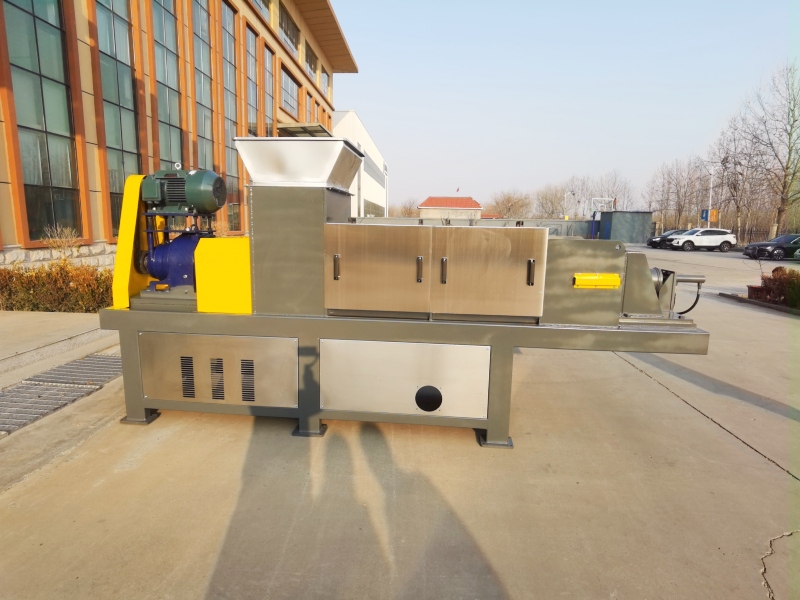
Spiral press dehydrator
Spiral press dehydrators are versatile machines widely used in various industries for removing moisture from different materials. These machines utilize a spiral squeezing mechanism to effectively separate liquids from solids. In this article, we will explore the working principles and applications of spiral press dehydrators, highlighting their significance in modern industrial processes.
Working Principles:
A spiral press dehydrator employs a spiral shaft and a series of screen plates to achieve efficient dewatering. The material to be dehydrated is fed into the machine's feeding hopper, from where it is evenly distributed onto the rotating screen plates. As the material moves along the spiral shaft, the liquid component is squeezed out through the small gaps in the screen plates due to the pressure applied by the spiral mechanism. The separated liquid is collected and discharged, leaving behind the dewatered solid material.
Applications:
Agricultural Sector: Spiral press dehydrators find extensive use in agriculture for processing various organic materials, such as fruit pomace, vegetable residues, and spent grains from breweries. By reducing moisture content, these machines facilitate the production of nutrient-rich animal feed and organic fertilizers.
Food Processing Industry: In the food industry, spiral press dehydrators are employed to extract liquids from a variety of sources, including fruits, vegetables, and seafood. This process is crucial for producing concentrated juices, sauces, and purees, as well as for preserving perishable products by removing excess water content.
Wastewater Treatment: Municipal and industrial wastewater treatment facilities use spiral press dehydrators to dewater sludge generated during the treatment process. This reduces the volume of sludge, making it easier to handle and transport for further processing or disposal.
Biofuel Production: In the biofuel sector, spiral press dehydrators play a role in extracting moisture from biomass feedstocks like algae, wood chips, and agricultural residues. The dewatered biomass is then more suitable for processes like pyrolysis, fermentation, and gasification to produce biofuels.
Paper and Pulp Industry: Spiral press dehydrators assist in dewatering pulp and paper mill sludges, resulting in reduced waste volume and enhanced disposal efficiency. Additionally, the recovered fibers can be recycled, contributing to sustainable production practices.
Advantages:
Efficient moisture removal.
High dewatering rates.
Reduced waste volume.
Versatile applications across industries.
Enhanced product quality by concentrating flavors and nutrients.
Conclusion:
Spiral press dehydrators are indispensable tools in modern industrial processes, contributing to increased efficiency, reduced waste, and improved product quality. Their ability to effectively separate liquids from solids makes them valuable assets in agriculture, food processing, wastewater treatment, biofuel production, and other sectors. As technology continues to evolve, spiral press dehydrators are likely to become even more versatile and efficient, further advancing various industries.




If your company wants to establish a business relationship with us, please briefly describe the cooperation intention and send an email to:chuantaiscrewpress@gmail.com























































































![[list:title]](/static/upload/image/20240528/1716877114510915.jpg)